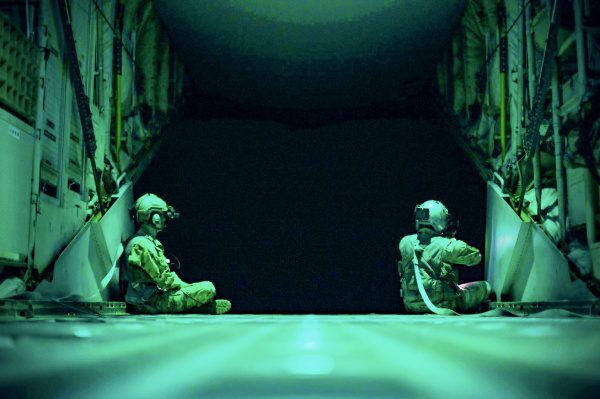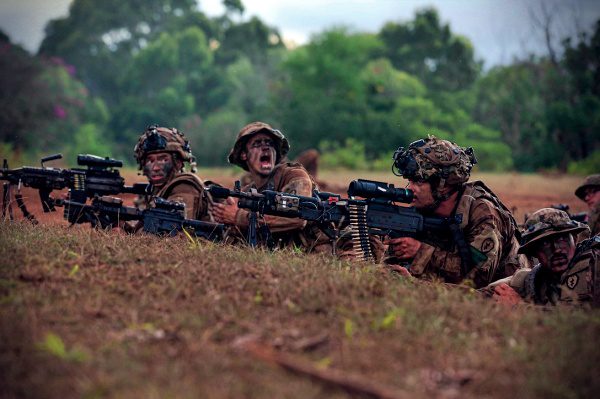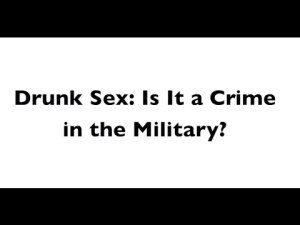An in-depth look at the torture practices of the United States in Afghanistan, Iraq, and Guantanamo Bay, focusing on an innocent taxi driver in Afghanistan who was tortured and killed in 2002.
View Official IMDB profile.
youtube.com/watch?v=IMgTrTiEWys
Taxi to the Dark Side is a 2007 American documentary film directed by Alex Gibney, and produced by him, Eva Orner, and Susannah Shipman. It won the 2007 Academy Award for Best Documentary Feature.[1] It focuses on the December 2002 killing of an Afghan taxi driver named Dilawar,[2] who was beaten to death by American soldiers while being held in extrajudicial detention and interrogated at a black site at Bagram Airbase.
It was part of the Why Democracy? series, which consisted of ten documentary films from around the world questioning and examining contemporary democracy. As part of this series, the documentary was broadcast in over 30 countries from October 8–18, 2007. The BBC showed the film in its Storyville series.
Overview
Taxi to the Dark Side examines US policy on torture and interrogation, specifically the CIA’s use of torture and their research into sensory deprivation. The film includes discussions against the use of torture by political and military opponents, as well as the defense of such methods; attempts by Congress to uphold the standards of the Geneva Convention forbidding torture; and popularization of the use of torture techniques in TV shows such as 24.
Plot
The documentary concerns the death of Dilawar, an Afghan peanut farmer, who gave up farming to become a taxi driver and who died after several days of beating at Bagram detention center.
Dilawar left his home of Yakubi in eastern Afghanistan in the autumn of 2002, investing his family money in a new taxi to make money in a larger city. On 1 December 2002, he and three passengers were handed over to US military officials by a local Afghan warlord, accused of organizing an attack on Camp Salerno. The warlord was later found guilty of the attack himself but had been ingratiating himself (for $1000 per person) by handing over alleged terrorists.
Dilawar was held at the prison at Bagram Air Base, and given the prisoner number BT421. Chained from the ceiling, he received multiple attacks on his thighs, a standard technique viewed as “permissible” and non-life-threatening. It is likely that the severe attack caused a blood clot which then killed him. His official death certificate created by the US military to pass to his family, with his body, was marked “homicide.” The medical conclusion stated that Dilawar’s legs were “pulpified” and, had he lived, would have required amputation.
The film explores the background of increasingly sanctioned torture following 9/11 in contravention of the Geneva Convention and looks at the exposure of Abu Ghraib.
Interviews include Tim Golden of The New York Times who brought the case into the international spotlight, and Moazzam Begg, a British citizen imprisoned at the same time, and witness to the events. Military interviewees include Damien Corsetti the main interrogator, and Sgt. Anthony Morden. Cpt Christopher Beiring explains how he was the only person charged (charged with dereliction of duty).
The documentary claims that of the over 83,000 people incarcerated by US forces in Afghanistan up to 2007, 93 percent were captured by local militiamen and exchanged for US bounty payments. Also that 105 detainees had died in captivity and that 37 of these deaths had been officially classified as homicides up to 2007.[3]
The film also looks at Guantánamo Bay and how the same techniques were implemented there.
Release
The film premiered at the Tribeca Film Festival in New York City on April 28, 2007.[4]
Reception
Alex Gibney and the crew of Taxi to the Dark Side at the 67th Annual Peabody Awards
Taxi to the Dark Side appeared on some critics’ top ten lists of the best films of 2008. Premiere magazine named it the fifth best film of 2008,[5] and Bill White of the Seattle Post-Intelligencer named it the seventh-best film of 2008.[5] The film also scored 100% for critic approval, out of 93 reviews on Rotten Tomatoes, with a weighted average of 8.34/10. The site’s consensus reads: “Taxi to the Dark Side is an intelligent, powerful look into the dark corners of the War on Terror”.[6] It also has a score of 82 out of 100 on Metacritic, based on 25 critics, indicating “universal acclaim”.[7]
Awards
The film was named by the Academy of Motion Picture Arts and Sciences as one of 15 films on its documentary feature Oscar shortlist in November 2007,[8][9] and won the Oscar on February 24, 2008.[10] In his acceptance speech for the “Best Documentary Feature” Academy Award, Gibney said:
This is dedicated to two people who are no longer with us, Dilawar, the young Afghan taxi driver, and my father, a navy interrogator who urged me to make this film because of his fury about what was being done to the rule of law. Let’s hope we can turn this country around, move away from the dark side and back to the light.[10][11]
It also won a Peabody Award in 2007 “for its sober, meticulous argument that what happened to a hapless Afghani was not an aberration but, rather, the inevitable result of a consciously approved, widespread policy.”[12] Additionally, Gibney received the Writers Guild of America Award for Best Documentary Screenplay at the 60th Writers Guild of America Awards.[13]
Controversies and legal disputes
In June 2007, the Discovery Channel bought the rights to broadcast Taxi to the Dark Side. However, in February 2008, it made public its intention never to broadcast the documentary due to its controversial nature.[14] HBO then bought rights to the film and announced that it would be broadcast in September 2008, after which the Discovery Channel announced it would broadcast Taxi to the Dark Side in 2009.
In June 2008, Gibney’s company filed for arbitration, arguing that THINKFilm failed to properly distribute and promote the film following its release and Oscar win.[15][16]
See also
- Standard Operating Procedure (2008 film)
- Torturing Democracy (2008 film)
- Jan Baz
- Mohammed al-Qahtani – Guantanamo detainee discussed in the film
- Ibn al-Shaykh al-Libi
- Abu Ghraib torture and prisoner abuse
- Extraordinary rendition by the United States
- Christopher Beiring
- Canadian Afghan detainee abuse scandal
- Bagram torture and prisoner abuse
- List of films with a 100% rating on Rotten Tomatoes, a film review aggregator website
References
- ^ 2008|Oscars.org
- ^ Eliza Griswold (May 2, 2007). “The other Guantánamo. Black Hole”. The New Republic. Archived from the original on May 9, 2007. Retrieved 2007-05-03.
- ^ Phillips, Richard (28 March 2008). “Taxi to the Dark Side: Murder of young Afghan driver exposes US torture policies”. World Socialist Web Site. Retrieved 17 November 2016.
- ^ Beckey Bright (April 28, 2007). “Director Explores ‘Dark Side’ Of U.S. Treatment of Detainees”. Wall Street Journal. Retrieved 2007-05-05.
- ^ Jump up to:a b “Metacritic: 2008 Film Critic Top Ten Lists”. Metacritic. Archived from the original on January 2, 2009. Retrieved January 11, 2009.
- ^ “Rotten Tomatoes review of Taxi to the Dark Side”. Rotten Tomatoes. 2008-01-22. Retrieved 2019-07-01.
- ^ “80th Annual Academy Awards Nominees”. Academy of Motion Picture Arts and Sciences. 2008-01-22. Archived from the original on 2008-01-23. Retrieved 2008-01-22.
- ^ “Shortlist for docu Oscar unveiled”. The Hollywood Reporter. 2007-11-20. Archived from the original on July 5, 2008. Retrieved 2007-12-21.
- ^ Jump up to:a b ““Taxi to the Dark Side”: Exposé on US Abuses in “War on Terror” Wins Oscar for Best Documentary”. Democracy Now. 26 February 2008. Retrieved 17 November 2016.
- ^ Taxi to the Dark Side Wins Documentary Feature: 2008 Oscars
- ^ 67th Annual Peabody Awards, May 2008.
- ^ Thielman, Sam; McNary, Dave (February 9, 2008). “Cody, Coens bros. top WGA Awards”. Variety. Retrieved February 20, 2019.
- ^ Democracy Now! 12 Feb 2008 transcript, retrieved on 12 Feb 2008.
- ^ Christine Kearney (2008-06-26). “US documentary maker seeks damages over Oscar film”. Reuters. Retrieved 2008-06-26. He sued for damages, claiming that the film has grossed only $250,000 up to June 2008 due to inadequate promotion.
- ^ Charles Lyons (June 26, 2008). “Filmmaker Says Distributor Failed Him”. The New York Times. Retrieved 2008-07-21.
External links
- Washington Post – Down a Dark Road by Richard Leiby
- BBC News – Torture film wins Tribeca award
- Variety review by Jay Weissberg
- Interview with Taxi to the Dark Side director Alex Gibney at Filmmaker Magazine
- Pullquote review
- Taxi to the Dark Side at IMDb
War Crimes In Iraq War
In 2017, two further submissions made to the OTP by ECCHR confirmed that there was a reasonable basis for believing that members of the British Armed Forces committed war crimes in Iraq, including intentional killing, torture, inhuman and cruel treatment, violations of personal dignity and rape and other forms of sexual violence. A 180-page report by the International Criminal Court (ICC) concluded that British forces tortured hundreds of prisoners between 2003 and 2009 and that at least seven Iraqis were killed in the custody of British military units that invaded and occupied their country. In relation to the war crimes committed by British troops in Iraq, Britain has failed to protect its senior personnel from being held in a blatant and aggressive manner.
The International Criminal Court has ended its long-running investigation into claims that British troops committed war crimes between 2003 and 2008 in Iraq. Over six years after it was concluded ICC ended a preliminary investigation into torture and war crimes committed by British forces in Iraq. On December 9, 2020 the Office of the Prosecutor (OTP) of the International Criminal Court (ICC) announced its decision to close the preliminary investigation into alleged war crimes committed by British troops in Iraq between 2003 and 2009. The OTP explained its reasons in an unprecedented 184-page report.
The International Criminal Court (LCC) has been unable to hold Saddam Hussein and his associates in the past for hundreds of thousands, perhaps a quarter of a million civilian deaths, torture, rape, looting and other crimes against humanity and war crimes, but these crimes still persist to this day in Iraq. The government has not ruled out an international criminal tribunal for the atrocities and crimes committed by the Iraqi regime over the past quarter-century, but has not yet ruled out the possibility that war crimes committed by Iraqi citizens during the current conflict may be prosecuted by Iraqi courts or international tribunals. Iraq’s Supreme Criminal Court has jurisdiction to consider crimes of genocide, crimes against humanity and war crimes committed during the reign of Saddam Hussein (1968-2003), including the 1988 chemical attack on the Kurdish village of Halabja, the 1990 invasion of Kuwait and the 1991 crushing of the Shiite insurgency in southern Iraq.
When I look at the plans of the US governments for recent military actions in Afghanistan and Iraq as well as those they have carried out and continue to carry out, I often come across prima facie evidence that US leaders and their forces committed crimes against peace, war crimes and crimes against humanity in this area as defined in the 1945 International Military Tribunal Charter in Nuremberg. There is a reason why the United States government prosecutes its war crimes in Iraq because they are awful and because many of them are international law which crumbles when the US is prosecuted and convicted for what it does. It is extremely possible that Saddam Hussein and his closest associates, and they have been committing these crimes for years, have committed them and will continue to commit them until the international community says that there is enough force for change in Iraq, that Saddam Hussein must force regime change in that country.
The rape and murder of a 14-year-old Iraqi girl and the murder of three family members are among the most provocative of a series of war crimes that have tarnished the reputation of U.S. forces in Iraq. Security forces executing alleged army deserters are not a war crime, but such acts are illegal under Iraqi law and constitute human rights violations. Documents from trials in which US military officers were accused of crimes against civilians in Iraq and Afghanistan shed light on the war crimes in Iraq which were secreted from the public.
One of them, Nizar al-Khazraji, the former chief of staff of the Iraqi Armed Forces was charged in Denmark for his alleged involvement in war crimes committed between 1980 and 1988 by Iraq against Kurdish civilians during the Iran-Iraq war. During the war there are credible reports that Iraqi troops have killed several thousand Iranian prisoners of war – war crime and grave violation of the 1949 Geneva Convention to which Iraq has acceded. The final report of the prosecutor of the international criminal court, prepared by Fatou Bensouda’s office, found a reasonable basis for believing that British troops committed war crimes in 2003 in Iraq and Iraq for the deliberate killing or murder of at least seven Iraqi prisoners.
The International Criminal Court considered possible criminal charges against Tony Blair and the British government concerning the invasion and military occupation of Iraq, but dismissed them because the actual crimes of invasion and occupation of a country that posed no threat to invaders “national security were ignored, the conclusion that the situation did not seem to meet the necessary thresholds of the Statute for deliberate killing or inhumane treatment of civilians, and that the real crime was the aggressive war crime of aggression, for which the Nazis were hanged in Nuremberg A preliminary investigation into alleged war crimes committed in Iraq by British troops never reached the level of a full investigation, but the International Criminal Court prosecutor concluded that the British authorities had to look at the allegations more closely.






